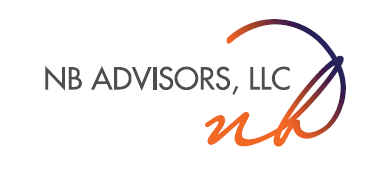The qualified business income (QBI) deduction is often misunderstood. Learn exactly what QBI is and find out if you’re eligible for this 20% deduction.
The Tax Cuts and Jobs Act includes a 20% deduction that many business owners can claim starting with their 2018 taxes. However, because the law is still fairly new, many home builders may not be aware of how much it benefits them. Here’s everything you need to know to claim this new tax break.
QBI is the net amount of income, gain, deduction, and loss from a qualified trade or business. Thus, the QBI deduction applies to several types of business owners and may reduce taxable income from their businesses by 20%, which is a pretty major deduction.
So, what is the QBI deduction, and who is eligible?
The QBI deduction explained
The qualified business income deduction is also called Section 199A, and it applies to tax years following December 31, 2017 (so the 2018 tax return, filed in 2019, is your first opportunity to claim this deduction). Business owners in the following categories could qualify:
- Sole proprietorships
- Partnerships
- S corporations
- Some trusts and estates
This deduction is up to 20% of a business’s QBI, in addition to 20% of any qualified real estate investment trust (REIT) dividends or income from qualified publicly traded partnerships (PTPs). It doesn’t matter whether the taxpayer decides to itemize deductions or take the standard deduction; the QBI deduction is available either way.
QBI safe harbor for rental real estate
A safe harbor test has been issued for Section 199A that allows taxpayers and owners of passthrough entities to claim the deduction for qualifying rental real estate enterprises, as well. These properties may qualify for the 199A safe harbor if they keep separate books and the taxpayer maintains records proving that 250 hours of rental services have been performed for that property over the year. Those services can include administration, rent collection, maintenance, advertising, and other tasks performed for that property.
However, even rental real estate that doesn’t meet safe harbor requirements could still qualify for the QBI deduction if it is a section 162 trade or business (which means the IRS or courts consider the activities of the business to be eligible to receive legitimate business deductions under section 162).
Qualifying income
The 199A deduction applies to two types of business income.
QBI: Qualifying business income must be from a domestic business that is either a sole proprietorship, partnership, S corporation, trust, or estate. There are limitations, however, including what kind of trade or business it is, its W-2 wages, and the unadjusted basis immediately after acquisition (UBIA) of qualifying property. The deduction could also be reduced if the business is a patron of an agricultural or horticultural cooperative.
REIT/PTP: As mentioned above, the REIT or PTP deduction can be up to 20% of qualifying REIT dividends and PTP income. Unlike the QBI, however, these are not limited by W-2 wages or UBIA, though qualifying PTP income could be limited based on the type of trade or business.
The total QBI deduction is limited to either the lesser of the QBI component plus the REIT or PTP component, or 20% of taxable income minus net capital gains.
What are the income limitations?
The QBI deduction is available to taxpayers whose 2018 taxable income is under $315,000 for joint returns and $157,000 for others. Limitations begin to phase in if taxable income is greater than these numbers, and there are full limitations if income is more than $415,000 for joint filers and $207,500 for other filers. At this point, the QBI deduction cannot exceed the greater of the taxpayer’s share of 50% of the W-2 wages paid to employees during the tax year, or the sum of 25% of W-2 wages plus 2.5% of qualified property costs.
What isn’t included in QBI?
Several types of income are excluded from QBI, including:
- Wage income
- Income earned through a C corporation
- Income for services provided as an employee
- Income for business outside of the U.S.Interest income that isn’t allocable to a trade or business
- Business income from specified service businesses, such as doctors, lawyers, accountants, and more
Even with these limitations and complex guidelines, this new tax break is a win for home builders. The potential 20% deduction could mean big tax savings.
To learn more about the tax deductions you may be eligible for, get in touch with our team at No Boundaries Advisors. We help home builders, construction companies, and developers with business planning and profitability consulting, and we’ll make sure you know each and every tax break that could apply to you.



